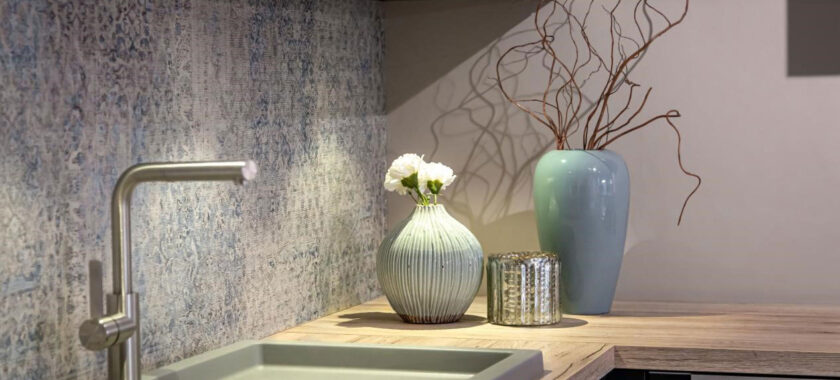Whether it’s a pesky blockage or a mysterious leak, we all face plumbing issues from time to time. But what if you know that some of these problems can be tackled without calling in a professional? Yes, you heard right! From the trusted advice of Proflush, here are some DIY kitchen sink plumbing hacks you can try at home.
The Boiling Water Trick
Before you reach for any chemicals, try pouring a kettle of boiling water down the drain. It’s a simple yet surprisingly effective method to dislodge minor blockages!
Baking Soda & Vinegar Magic
Mix equal parts of baking soda and vinegar, pour it down the drain, wait for 30 minutes, and then rinse with hot water. It’s a natural cleaning solution and works wonders on stubborn clogs.
The Plunger Power
A good old-fashioned plunger isn’t just for toilets! You can use it for your kitchen sink too. Just ensure a good seal and give it a few powerful pushes and pulls.
Check the U-Bend
Sometimes, the problem is right under the sink. Put a bucket under the U-shaped pipe (called the U-bend) and unscrew it. You can often find and remove any blockages here. Just remember to screw it back properly.
Preventing Grease Build-Up
To prevent blockages, never pour oil or grease down your sink. Instead, collect it in a container and dispose of it in the bin. The Australian Government’s Environment site has great guidelines on this.
Use Mesh Screens
To prevent food particles and other debris from going down your drain, invest in a mesh screen. They’re affordable and save you from many potential clogs.
Regular Maintenance
Lastly, regular maintenance can prevent major issues. Cleaning your sink with baking soda and hot water every week can help keep things running smoothly.
Why DIY Solutions Are a Good First Step
Embarking on a DIY journey can be quite fulfilling. There’s the undeniable satisfaction of resolving a problem using your own ingenuity and a handful of household items. By using DIY solutions, you not only save money but also learn valuable skills. It’s an initial step that might help you handle minor issues without having to wait for professional intervention. Besides, the feeling of watching a problem disappear with your own hands is nothing short of magic.
The Power of Natural Solutions
While it’s tempting to grab the most potent chemical solution from the supermarket shelf, it’s not always the best route. Chemical cleaners can sometimes cause more harm than good. They might erode your pipes over time or even harm the environment. This is why turning to natural solutions, like the baking soda and vinegar combo, is recommended. They are gentler on your pipes, eco-friendly, and don’t pose risks to your health or home. Plus, the chances are that you’ve got these items sitting in your pantry already!
Understanding The Common Kitchen Sink Problems
To apply the best solution, it’s essential to understand the problem first. The kitchen sink isn’t just about blockages:
- Odours: Often, a stinky sink is a sign of trapped food particles or a build-up of bacteria. Regular cleaning and deodorising, perhaps with citrus fruits, can keep these smells at bay.
- Slow Drain: This might indicate a minor blockage, which can be fixed using the baking soda-vinegar method or by physically removing the obstruction.
- Persistent Blockages: If you’ve tried everything and the problem persists, it might be time to inspect deeper or consider seeking help.
- Water Backflow: This can be a significant issue, hinting at blockages further down the pipeline. It’s crucial to address it quickly to prevent potential water damage.
- Discolouration: Notice a reddish-brown tint in your water? This could be a sign of rust in your pipes, and you might need to check the plumbing.
When to Call a Pro
DIY solutions are incredible, but they have their limitations. There’s no harm in admitting when a problem is beyond your capabilities. If you’ve tried multiple methods and the issue remains, or if you notice something alarming, like water damage or mould growth, it’s time to get in touch with the experts at Proflush. Professionals can diagnose the issue’s root, provide solutions, and even offer advice to prevent such problems in the future.
Safety First!
Before diving into any DIY plumbing solution, remember always to prioritise safety:
- Turn Off Water: If you’re going to fiddle with the pipes, it’s a good idea to shut off the water source.
- Wear Gloves: Some problems might be a bit yucky (think old, trapped food). Gloves can help you tackle these without the “ew” factor.
- Avoid Mixing Chemicals: If you’ve already tried a commercial drain cleaner, don’t immediately follow it up with a natural solution. Mixing chemicals can produce harmful fumes.
- Always Have a Backup Plan: Have the number of your local plumbing service handy. Sometimes, problems can escalate, and it’s always good to have a backup plan.
Conclusion
Plumbing issues in the kitchen are inevitable, given the heavy use this particular sink sees daily. Whether it’s washing hands, rinsing vegetables, or cleaning dishes, the kitchen sink is perpetually in action. It’s essential to follow proper sanitation and maintenance guidelines, like those provided by the Australian Government’s Department of Health. While these DIY hacks are a great starting point, referring to resources from the Australian Building Codes Board can offer additional insights into maintaining the quality of your sink. Lastly, consider browsing the Australian Government’s Environment site for eco-friendly plumbing practices. After all, prevention is better than cure.
With these hacks from Proflush, your kitchen sink will be in tip-top shape in no time! Remember, regular maintenance is the key. But if things seem too complicated, it’s always safer to call in the experts. Feel free to get in touch with Proflush, your local plumbing specialist.
Frequently Asked Questions
While they can work, they often contain harsh chemicals. Natural solutions like baking soda and vinegar are safer for your pipes and the environment.
A weekly rinse with baking soda and hot water is a good practice.
First, check if the U-bend is properly sealed. If the problem persists, consider reaching out to Proflush’s repair services.
Yes! A slice of lemon or a handful of citrus peels can naturally deodorise your sink.
Grease, oil, large food particles, and non-biodegradable items.
No. They can cause blockages. It’s better to dispose of them in the compost or bin.
Gurgle sounds often indicate a forming blockage. Try clearing it out before it becomes a bigger issue.
Yes! You can check out the Australian Building Codes Board for detailed regulations.




